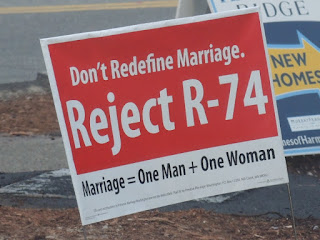Be. Shameless.
Recently, there has been an uptick on Google+ (in my own Stream, anyway) in chatter about love, respect, understanding, et cetera. Generally speaking, it's centered around the idea that there is a certain requirement to hold others in at a least a neutral, if not positive, regard. Whether it's an obligation on the part of self-proclaimed Christians to love all other people on Earth (regardless of what one thinks the Bible actually says about such things), the necessity of ending the use of the word "retarded" to refer to people with intellectual development disorders or a call to be more civil in political discourse, people are talking about it. And they're talking about remedies for it, perhaps simply keeping one's mouth shut on the one hand, or more prayer on the other.
In my own opinion, there is a fairly simple (on paper, anyway) way to do away with the impulse to intentionally disrespect or denigrate others. Learn to unconditionally accept oneself. When you can look in the mirror and have no criticisms of the person you see there, you will have no reason to look at anyone and have no criticisms of them, either. When you can contemplate anything that you might do, or anyone you might become, and not feel fear at that eventuality, others will not provoke fear in you. When you can understand that no matter what might befall you, there is no objective reason why it shouldn't have happened to you, you may go through life without anger at the rest of the world. When you accept that you have no control over what other people think of you, or anything else, it's easier to not become invested in what others think. When you can look at yourself and be complete, you will be able to release the things you surround yourself with, without feeling diminished. When you can see the distinction between the choices you make, and the person that you are, you will be able to understand that others have choices, and lose the inclination to judge.
Of course, this means learning to not heed one's Inner Critic, that cacophony of (familiar, if you listen to them) voices that lives in our heads and tells us that we are not worthy. You know the one, it tells you that "all people you know are local competitors who have better luck than you." It feeds on criticism (it is your Inner Critic, after all), shame, fear, anger, jealously, et cetera. It's what gives negative mindpsace a mind of its own. But it's also not real, just as it (usually) isn't a literal voice in your head.
I'm not going to sit here and tell you that this is easy. My own Inner Critic and I have been at it for years now, and just when I think I've managed to subdue it, I find another piece of it, hidden in a coping mechanism. I've noticed that the more I realize that it's not good for me, and attempt to reason my way free of it, the more it asserts itself, triggering on more and more trivial things in an effort to regain control. But I think I'm getting there. Of course, this is a "do, or do not" circumstance. But either way, I'm okay with it.






